

TPCN is the first content-embedded database of terpenoids. All of the data in TPCN were manually extracted from the literature and various online database resources. However, there may be unavoidable errors in manually collected data, such as irregular names of compounds, etc. User who find any mistakes are welcome to give us a feedback by email to ylchen622@163.com.
Users can browse through two methods: tables and cards.
The basic information of 10 molecules will be displayed on each page, including the compound's ID, Name, CAS Number, Molecular Formula, and SMILES. Users can click on the TerpenoidsID button to switch to the details page of molecules. Besides, users can also utilize the search function in the top right corner to search for specific compounds.
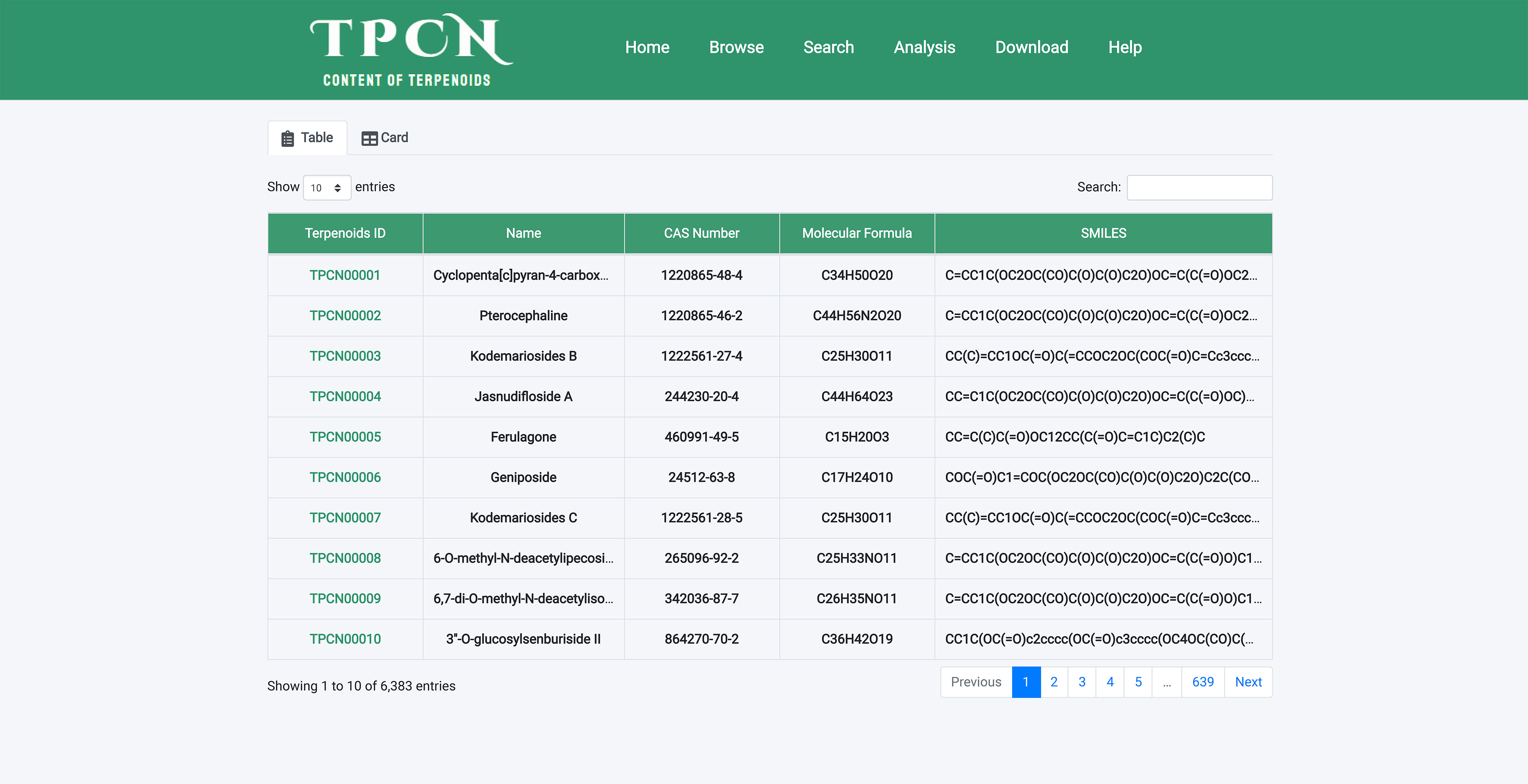
(Browser Table)
The basic information of 18 molecules will be displayed on each page, including the compound's ID, CAS Number and Structure (2D). Users can click on the CAS Number and TerpenoidsID button to switch to the details page of molecules. Besides, users can also click on the structure to enlarge and display it.

(Browser Card)
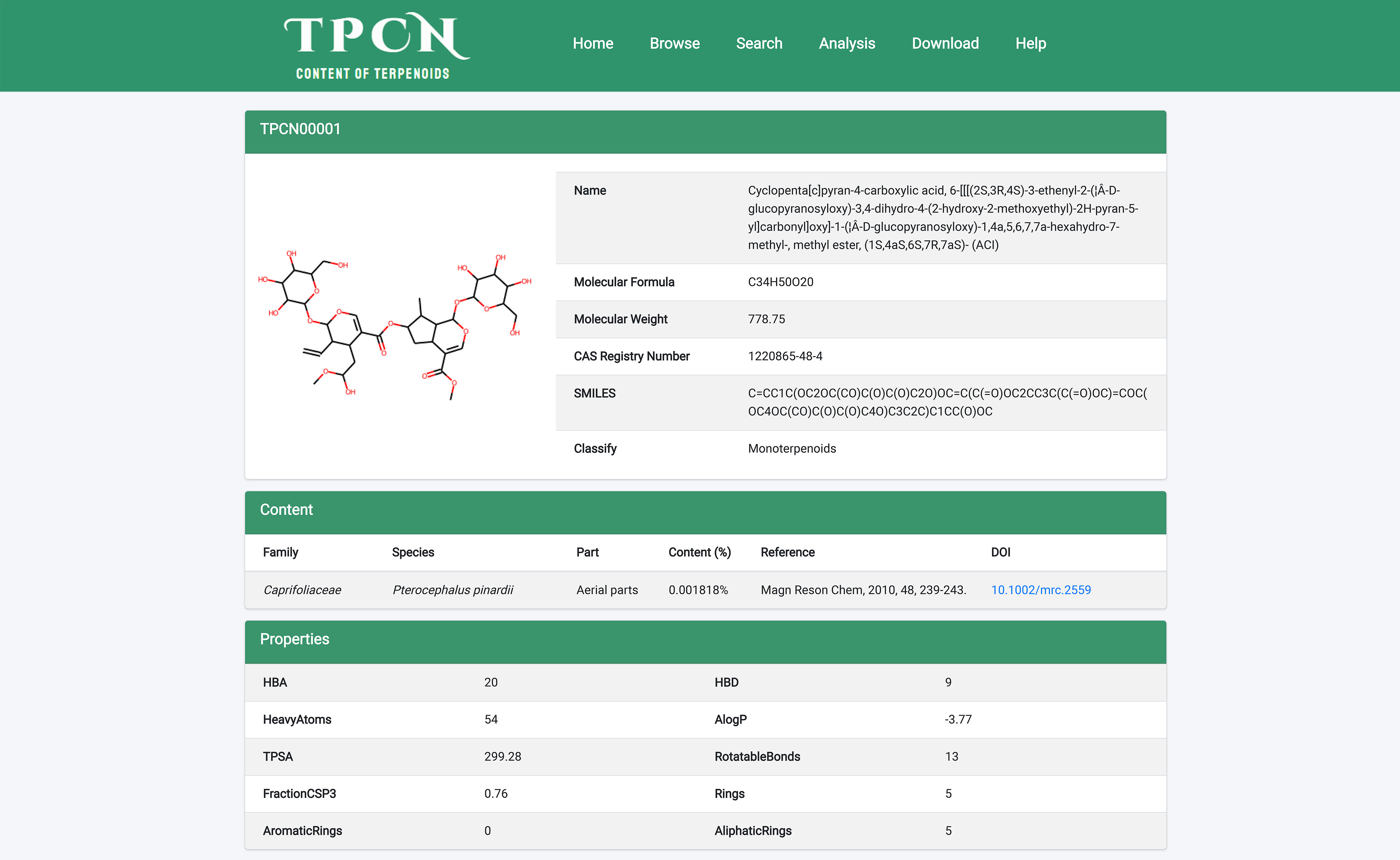
(Detail Information)
The detail page displays the comprehensive information of the compound, including its basic information (such as Name, SMILES, etc.), content, and physicochemical properties.
The TPCN database provides three search modes: basic search, advanced search, and structure search.
On the basic search page, users can retrieve compounds based on their basic information, such as TerpenoidsID, Name, SMILES, CAS number, Molecular Formula, Type, as well as the botanical information of the source plant, including family, species, and plant part.
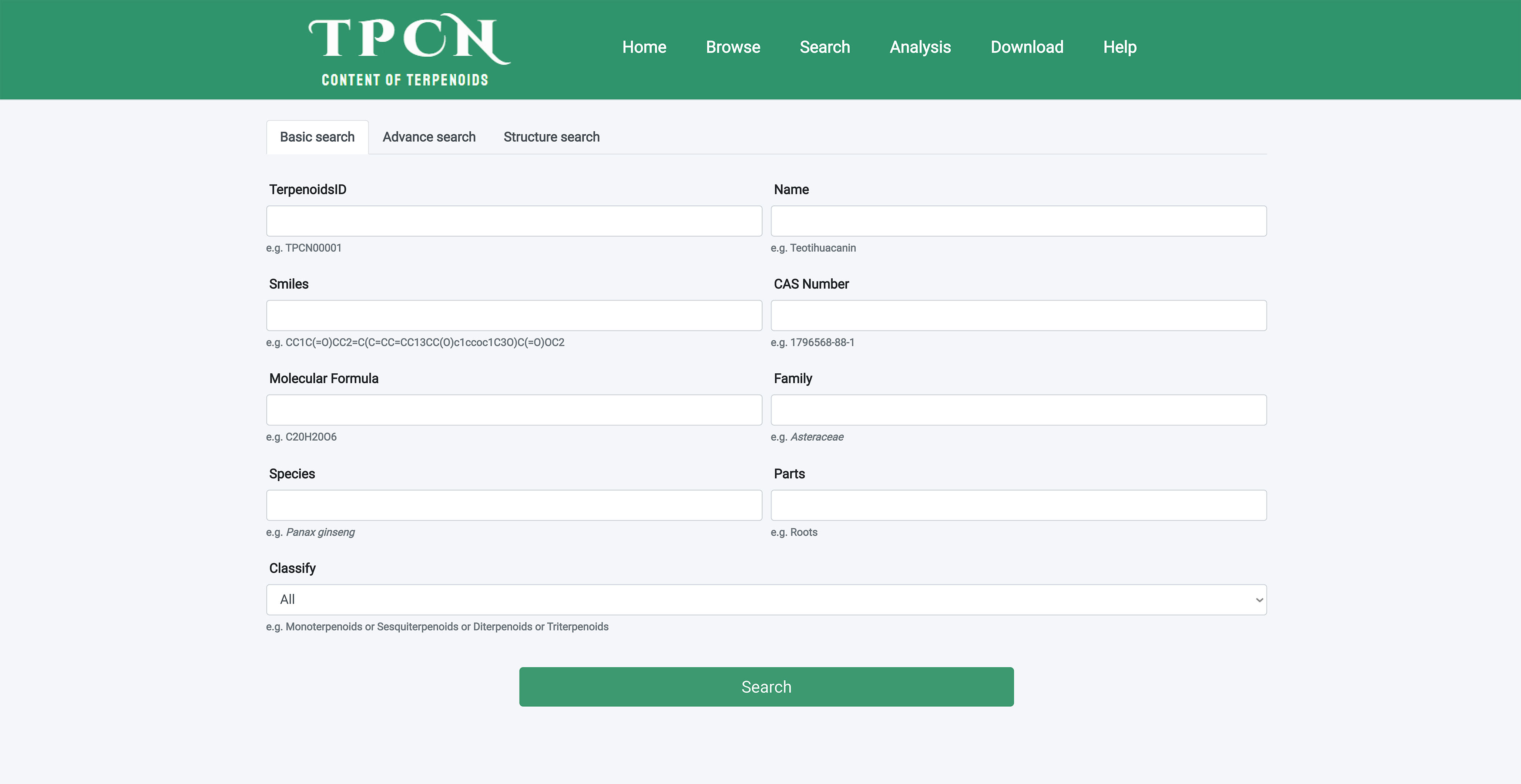
(Basic Search)
The Advanced Search page includes two search modes: Physicochemical filter and Scaffold filter. In the Physicochemical filter page, users can search for compounds based on 11 different physicochemical properties. In the Scaffold filter page, users can draw the Murcko scaffold of a compound to retrieve compounds that possess the same Murcko scaffold.
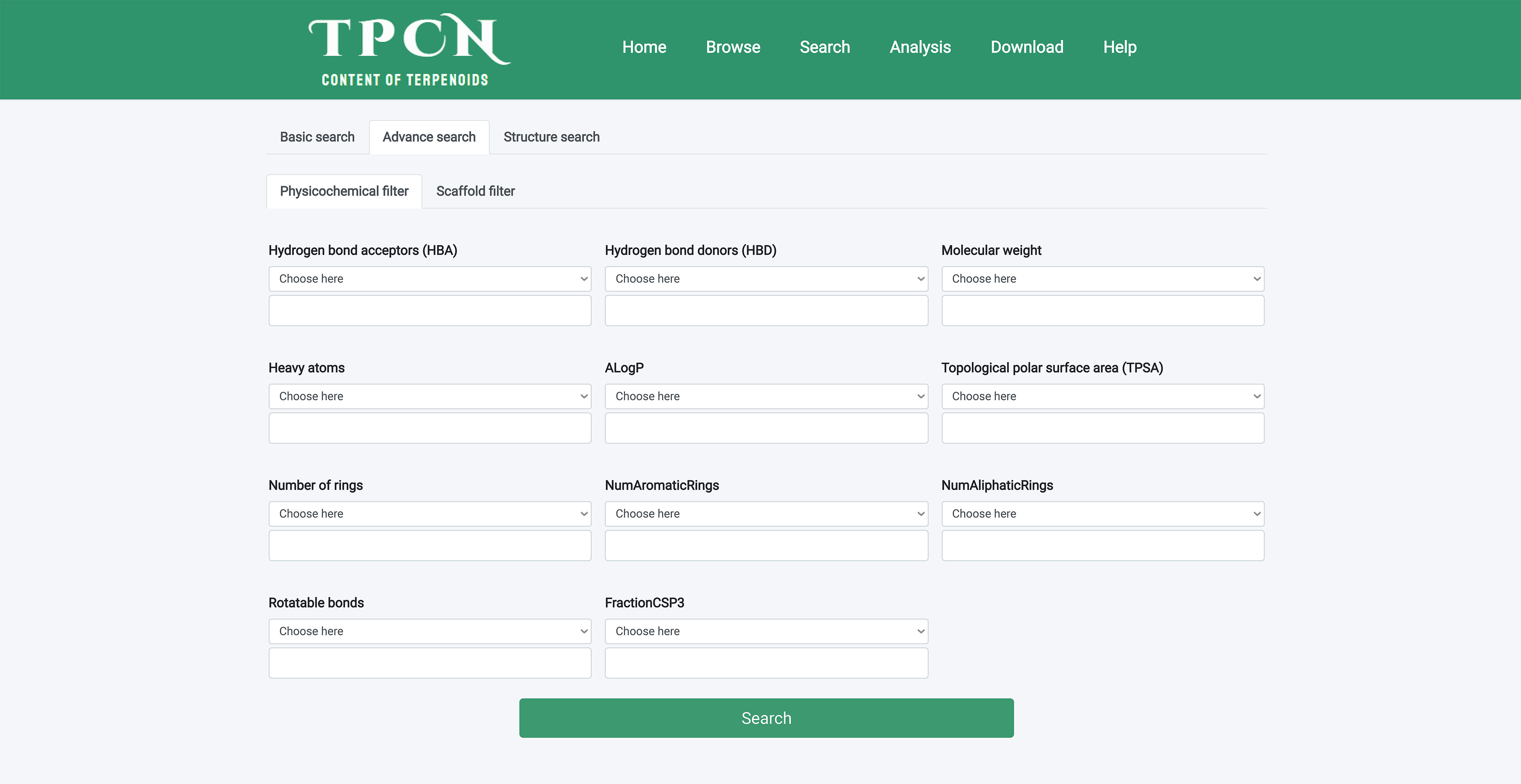
(Physicochemical search)

(Scaffold search)
The Structure Search page includes three search modes: Exact Search, Substructure Search, and Similarity Search. In the Exact Search page, users can draw the structure of a compound to precisely retrieve that specific compound. In the Substructure Search page, users can draw the substructure of a compound to retrieve compounds that contain that specific substructure. In the Similarity Search page, users can draw the structure of a compound and set a similarity threshold to retrieve compounds that are similar to the drawn structure.
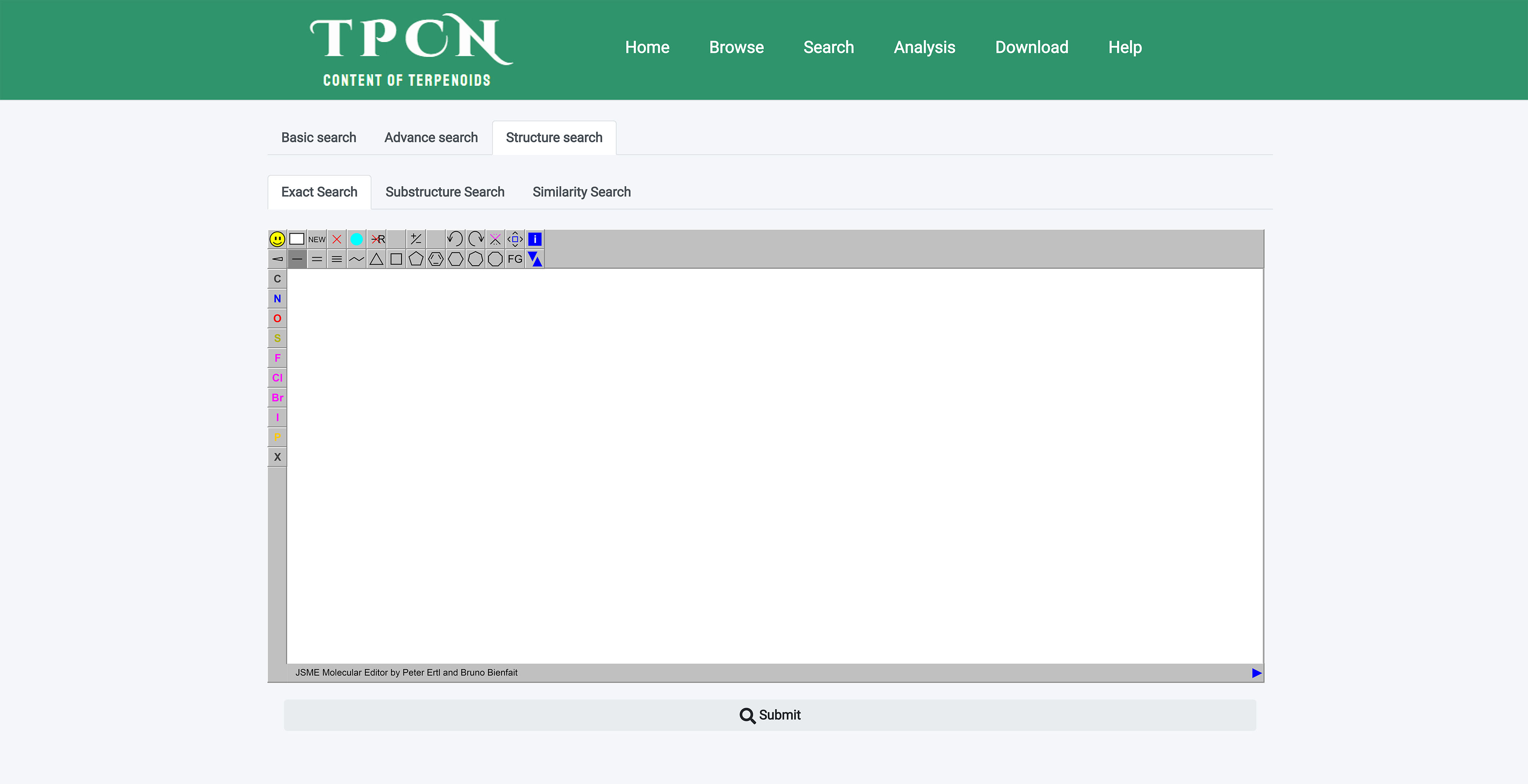
(Exact Search)
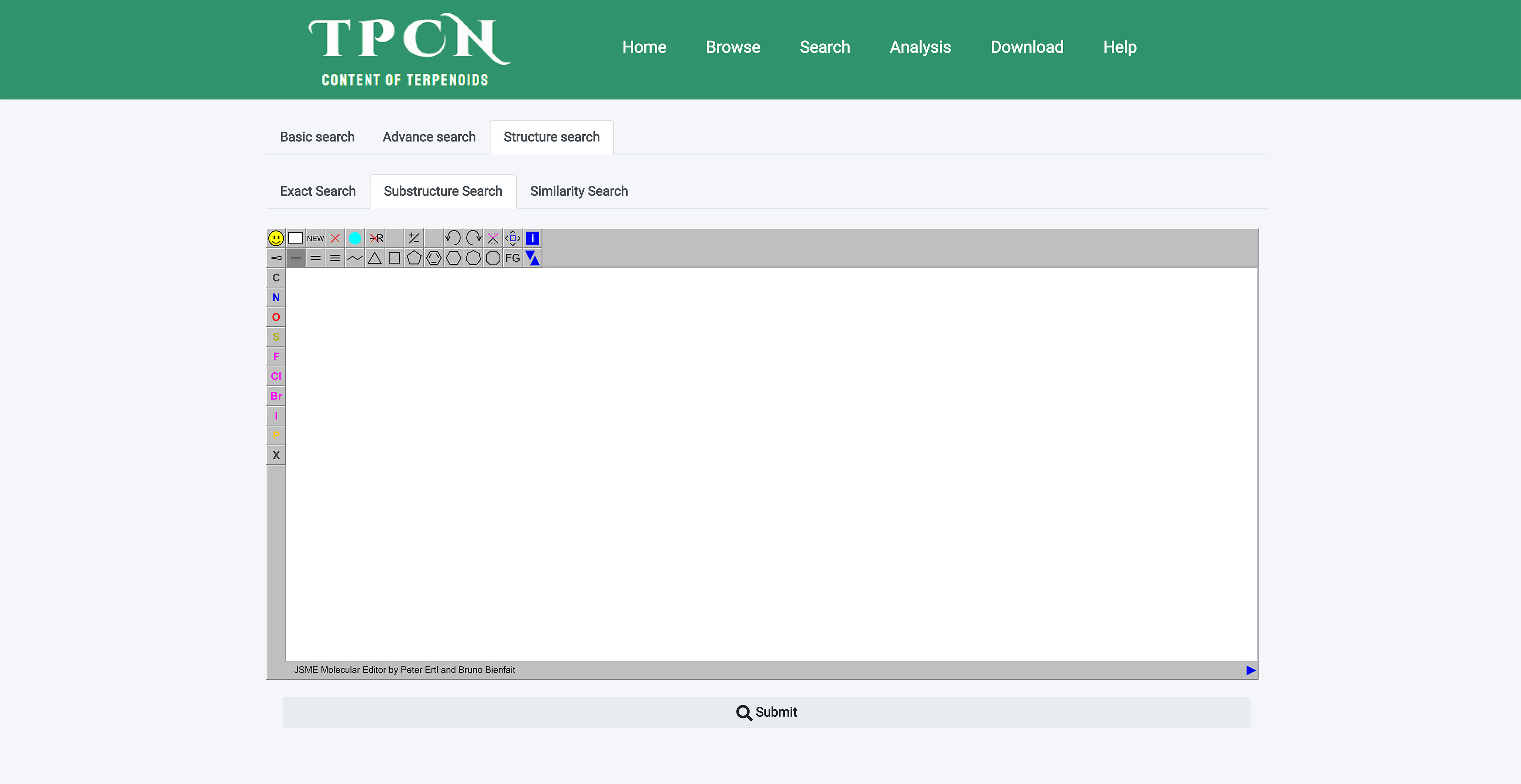
(Substructure Search)

(Similarity Search)
The Analysis page includes Scaffold Analysis and Similarity Analysis.
The Scaffold Analysis page displays all the Murcko scaffolds of terpenoids in the TPCN database along with the corresponding compound counts. By clicking on the compound count, users can switch to the page that lists the compounds with that specific Murcko scaffold.
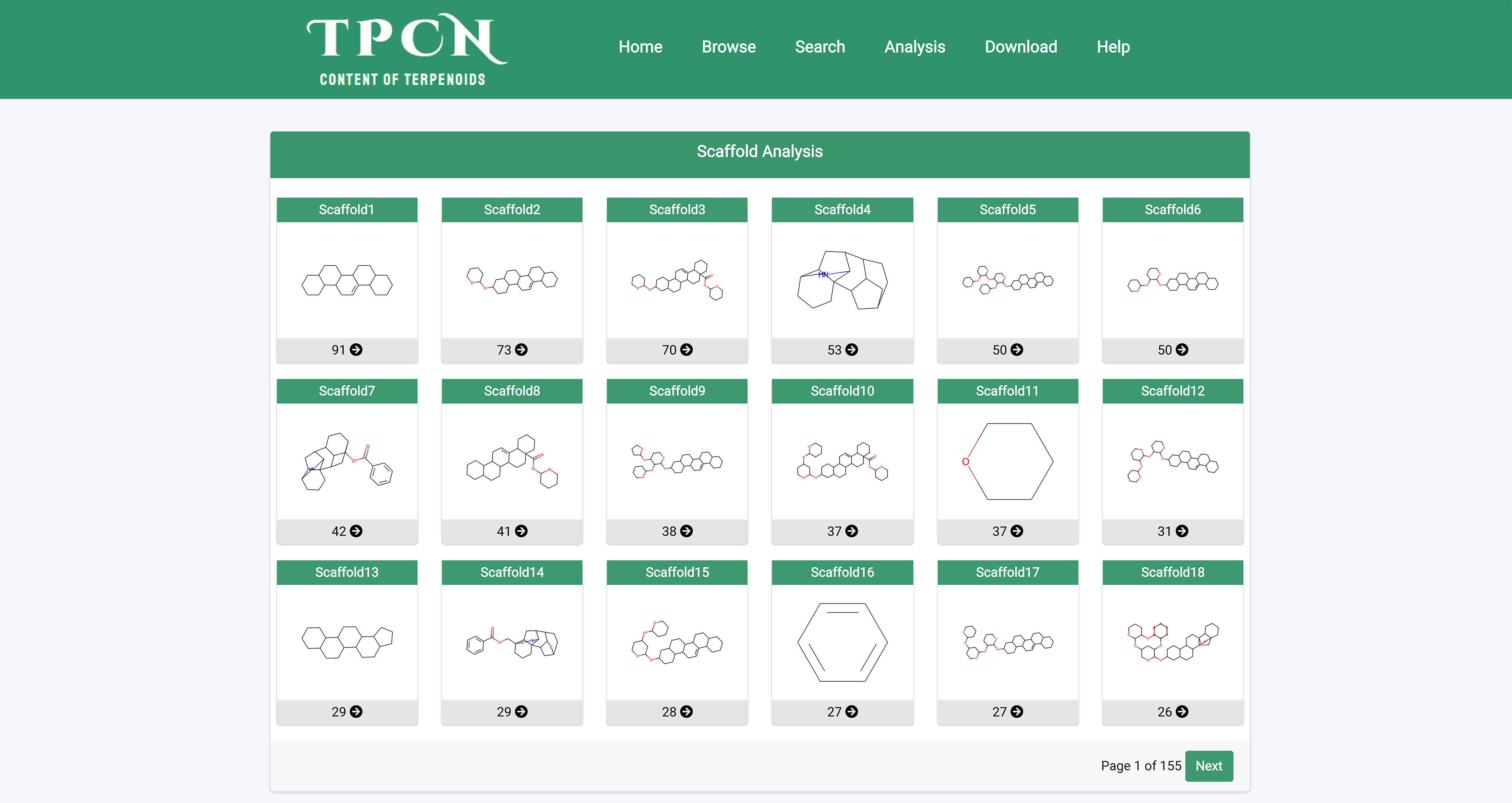
(Scaffold Analysis)
The Similarity Analysis page displays the similarity and content differences between terpenoids in the TPCN database.
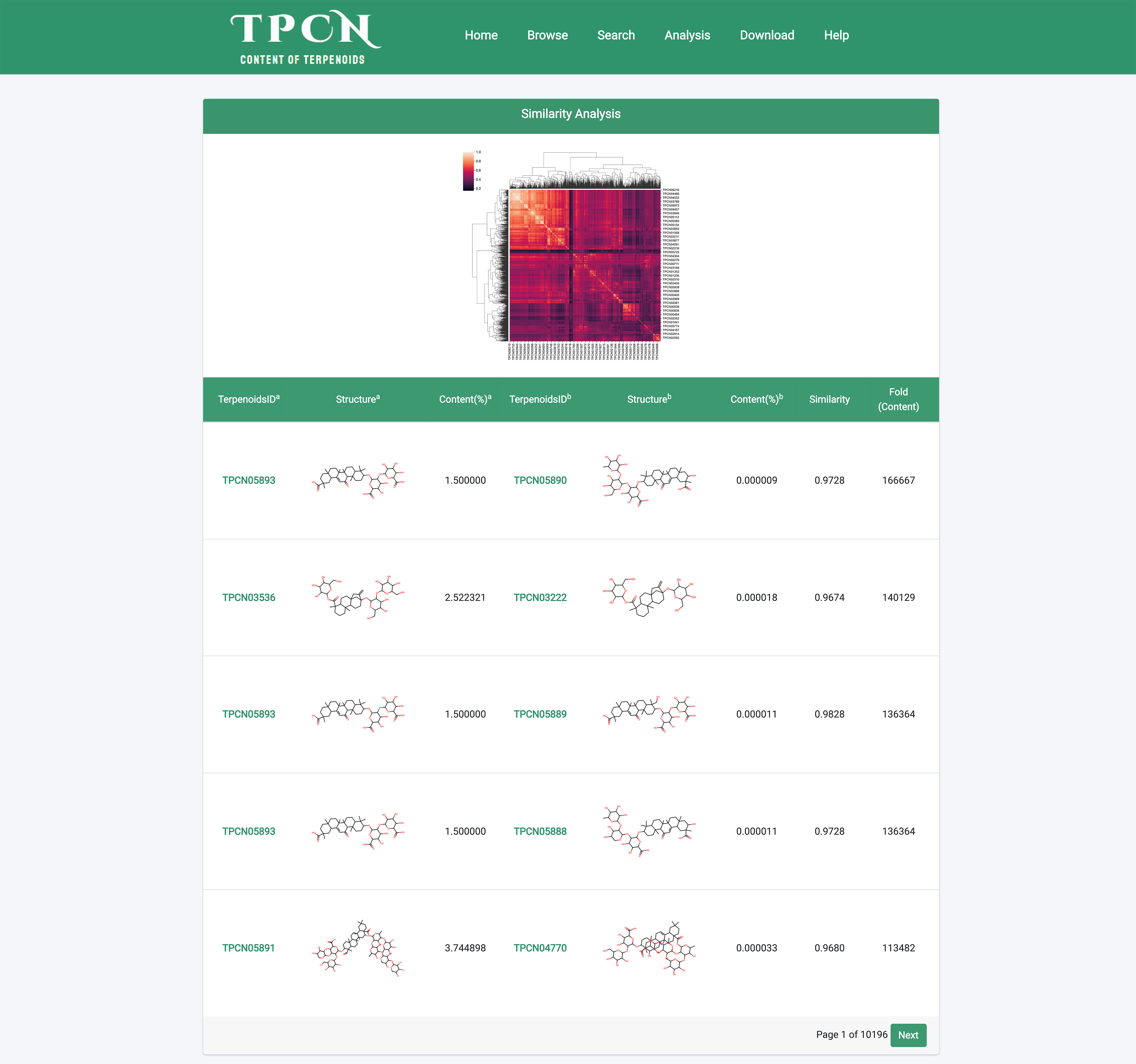
(Similarity Analysis)
The Download page enables users to download the fundamental information of compounds in the TPCN database, along with the botanical family and species information of the source plants.

(Download Page)